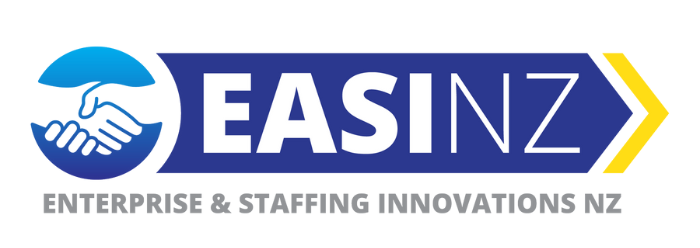HR: Help! My workers need help.
Carrie Vaugh - Easi NZ
25 September 2024, 5:00 PM

The sad thing is there are no 'right' answers when it comes to depression, as everyone seems to have their own version of disappearing into the ‘kumara pit’ or being chased by ‘The Black Dog.’
The ideas in this document are not meant to replace seeing a GP, going to a counsellor, or contacting qualified mental health services.
Is work the right place?
When someone is severely depressed, the only thing they can do is focus on getting out of bed and surviving that day. They have lost all concept of the future, and chances are they are sad/angry that they are in this state and sad/angry/fearful that they will never get out the other side.
I understand that going back to work and staying busy does sound like a good option, because staying at home, doing nothing, and 'marinating in your own juices' may worsen your mental health symptoms.
I also understand why an employer might be petrified that they could say or do the wrong thing when addressing an employee’s mental health concerns.
What can you do?
Here are a few things to think about beyond calling in Workplace Support or Employee Assistance Programmes:
Look after yourself and other team members.
Supporting a person through mental health issues can be harrowing and trigger your own problems. Look out for early warning signs, such as not sleeping, sleeping too much, not eating, eating too much, using alcohol or drugs as escapism, or being unusually obnoxious.
Talking to the worker
If they raise the issue of their mental illness, here are some helpful strategies:
Things you can say:
- Start with “I’ve noticed…” then just listen.
- Use reflective listening techniques.
- Tell me more…
- And, what else…
- So, you think that…
- If they have experienced mental health conditions before, remind them that they did get through it before (hope is important).
- Help them get the support they need (see the list of resources at the end).
Things to avoid:
- Making it all about you: “I/my friend/another worker went through the same thing…”
- Telling them they just need to “get over it” or “think happy thoughts” (that’s like telling someone with an amputation to stop bleeding).
- Changing the topic or dismissing it: “It’s not that bad; we need to focus on the next project.”

Key steps moving forward:
Have an open discussion with the worker, acknowledge their mental health concerns, and express that they are a valued and important member of the team.
Every morning, ask them how they are doing on a scale of 1-10, with 1 being ‘I want to go back to bed’ and 10 being everything is awesome.
If they give a low answer, ask them if they want to be at work or go home. NB: If you send them home, make sure you let their ‘emergency contact’/'next of kin' know.
Give them tasks that are easy to achieve, where they are working with someone else or within line of sight.
Play the 'I noticed' game; no matter how small, celebrate the wins. Building back their self-confidence and showing them that they are valued/valuable is an important part of mental wellbeing recovery.
If they talk about 'topping' themselves, call their emergency contact and let them know immediately.
Other warning signs are giving away prized possessions, "tidying things up" (emptying locker, paying off bills, organising for animals to be looked after) as if they were going on holiday, or being falsely 'over the top' happy for no apparent reason.
If they are on medication for mental health conditions, as they get better, explain that if they are going to go off the meds, they have to let their manager know so they can support them. Going cold turkey can cause a catastrophic relapse.
Resources
If you or someone you know needs help right now, you can free call or text 1737 any time for support from a trained counsellor through NZ Telehealth Services.
You can also call:
- MATES in Construction 24/7 Helpline 0800 111 315 or free text 5353
- Lifeline – 0800 543 354 (0800 LIFELINE) or free text 4357 (HELP)
- Suicide Crisis Helpline – 0508 828 865 (0508 TAUTOKO)
- Healthline – 0800 611 116
- Samaritans – 0800 726 666
Health Improvement Practitioners via your GP should be available to see you the same day to discuss mental health
These websites might also be useful:
- Mental health services for ongoing illness: Workwise
- Mike King's foundation: Key to Life
- Suicide support and prevention: NZ Mental Health Foundation
- Managing mental health concerns at work: WellPlaceNZ
- Support for young people: The Lowdown
- Feeling supported at work: Depression.org.nz
- Wellbeing strategies: Umbrella Wellbeing

PROFESSIONAL SERVICES
FREE ADVICE




